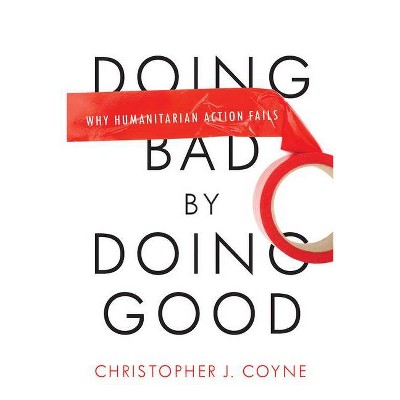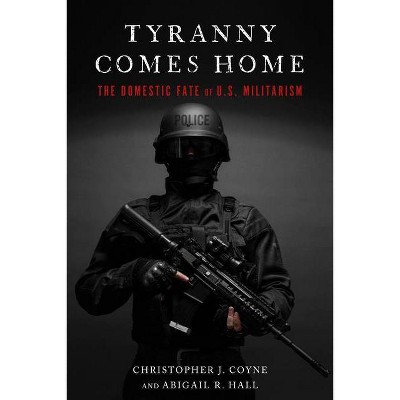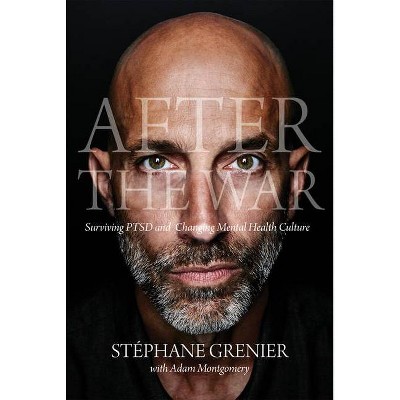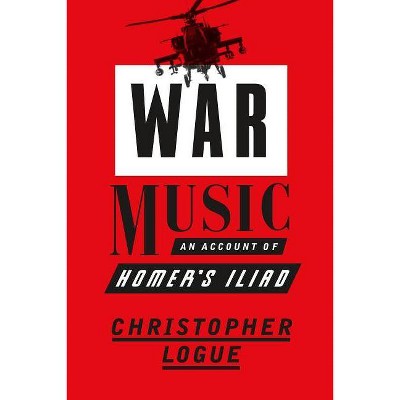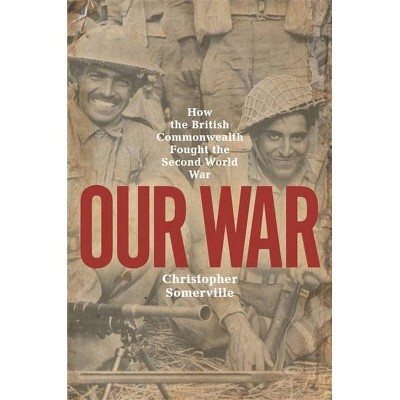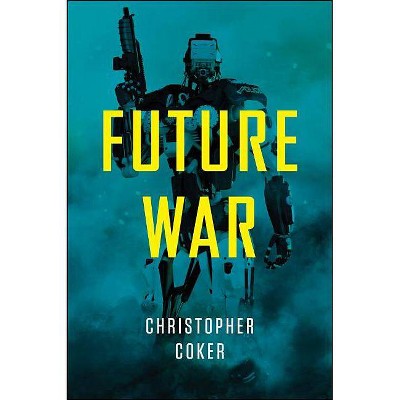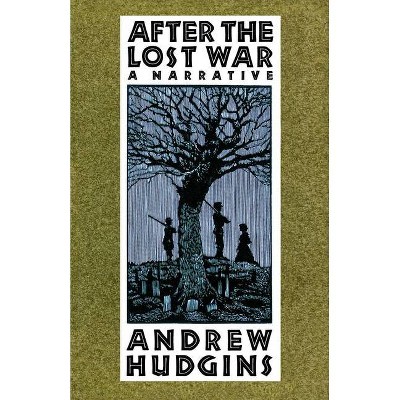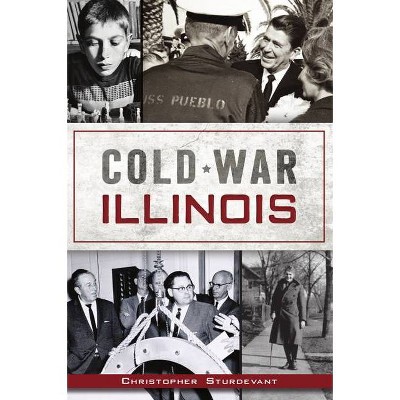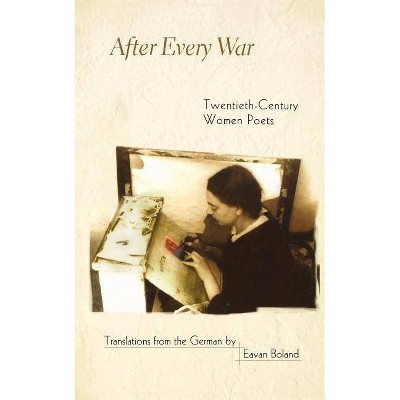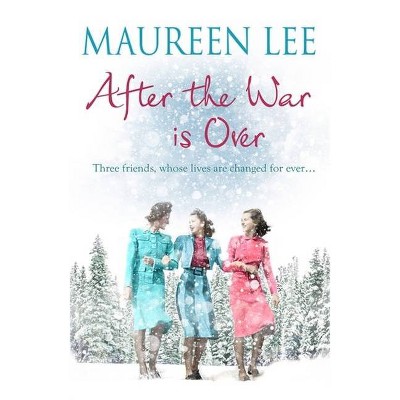After War - by Christopher J Coyne (Paperback)
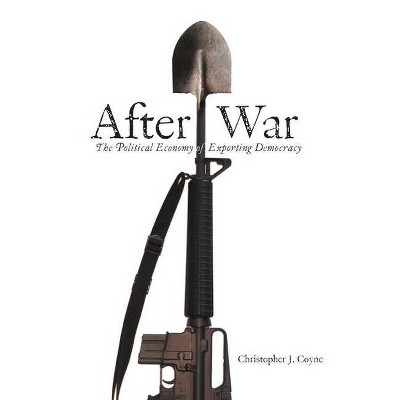
Similar Products
Products of same category from the store
AllProduct info
<p/><br></br><p><b> About the Book </b></p></br></br>Post-conflict reconstruction is one of the most pressing political issues today. This book uses economics to analyze critically the incentives and constraints faced by various actors involved in reconstruction efforts. Through this analysis, the book will aid in understanding why some reconstructions are more successful than others.<p/><br></br><p><b> Book Synopsis </b></p></br></br>Post-conflict reconstruction is one of the most pressing political issues today. This book uses economics to analyze critically the incentives and constraints faced by various actors involved in reconstruction efforts. Through this analysis, the book will aid in understanding why some reconstructions are more successful than others.<p/><br></br><p><b> Review Quotes </b></p></br></br><br><i>After War</i> adds a unique perspective on the United States's ability to impose liberal democratic institutions abroad. In clear prose, Christopher Coyne combines the economic way of thinking with an appreciation of politics, history, culture, and social factors to expose why past efforts to export liberal democracy have failed and why we should be skeptical of future efforts.--Emily Chamlee-Wright "Beloit College"<br><br><i>After War</i> supplies valuable historical context and offers new and vital perspectives on what is perhaps the major foreign policy and security challenge facing the United States and Europe at the start of the 21st century. It explains why the United States should never have intervened militarily in Afghanistan or Iraq and why it has no viable exit strategy other than unilateral withdrawal, leaving, as the Soviet Union did in 1989, a region awash in weaponry to be taken up by the next generation of insurgents, warlords, terrorists and other enemies of liberal democracy.--<i>Public Choice</i><br><br>[Coyne] believes forceful attacks against dictatorial regimes generally damage democracy. The recent invasion of Iraq is a prime example, he says in his new book <i>After War</i> . . . Most of this engaging new volume from Stanford University Press examines the economics and politics of present-day foreign policy . . . Liberal democracy cannot be exported in a consistent manner at gunpoint' is Coyne's central conclusion.--<i>Charleston Gazette</i><br><br>A brilliant and timely contribution that should shift the debate on U.S. foreign policy and state-building. In providing new insights from economic theory on what can be expected in post-conflict situations, Coyne guides us toward attainable goals and interventions that have a better chance of success.--Jack Goldstone "George Mason University"<br><br>Coyne demonstrates convincingly that national reconstruction seldom succeeds, and he presents the essential economic concepts and principles that allow us to understand why it usually fails . . . Economists will gain enlightenment from Coyne's compact, well-documented presentation of a great variety of relevant facts from some of the leading cases of national reconstruction in which the US government has engaged during the past century.--<i>The Review of Austrian Economics</i><br><br>Having recently had an opportunity to read <i>After War</i> . . . I've found myself trying out his application of economic principles to the analysis of armed conflicts, particularly in the case of America's current occupation of Iraq. This has proven especially useful.--<i>The Economist: Free Exchange</i><br><br>I view the key analytical point as focusing on the power of on-the-ground expectations to make the reconstruction 'game' either a cooperative or combative one. This is a difficult variable to control, but Chris offers a very good look at the best and worst attempts that the United States has made to manipulate these variables and thus export democracy. If you want to know why the Solow model doesn't seem to hold for Bosnia, or a deeper more analytic sense of why Iraq has been a mess, this is the place to go.--<i>Marginal Revolution</i><br><br>Professor Coyne is obviously a dove rather than a hawk. But he accepts the case for occasional intervention for humanitarian reasons or to protect US citizens. His main suggestions are to avoid nation-building types of intervention and adopt free trade, if necessary unilaterally by the US. It is perhaps <i>déformation professionelle</i> for economists to overrate the spillover benefits of the latter. But peace and welfare may depend on how far the next US president accepts the main lines of his analysis--a subject even more important than the current credit crunch.--<i>The Financial Times</i><br><p/><br></br><p><b> About the Author </b></p></br></br>Christopher J. Coyne is Assistant Professor, Department of Economics, West Virginia University, a Research Fellow at the Mercatus Center, and an Associate Editor for the <i>Review of Austrian Economics</i>. He has published articles in numerous scholarly journals, including <i>Cato Journal</i>, <i>Constitutional Political Economy</i>, <i>Economic Journal</i>, <i>Journal of Economic Behavior and Organization</i>, <i>Kyklos</i>, and <i>Review of Political Economy</i>.
Price History
Cheapest price in the interval: 28 on November 8, 2021
Most expensive price in the interval: 28 on December 20, 2021
Price Archive shows prices from various stores, lets you see history and find the cheapest. There is no actual sale on the website. For all support, inquiry and suggestion messagescommunication@pricearchive.us
